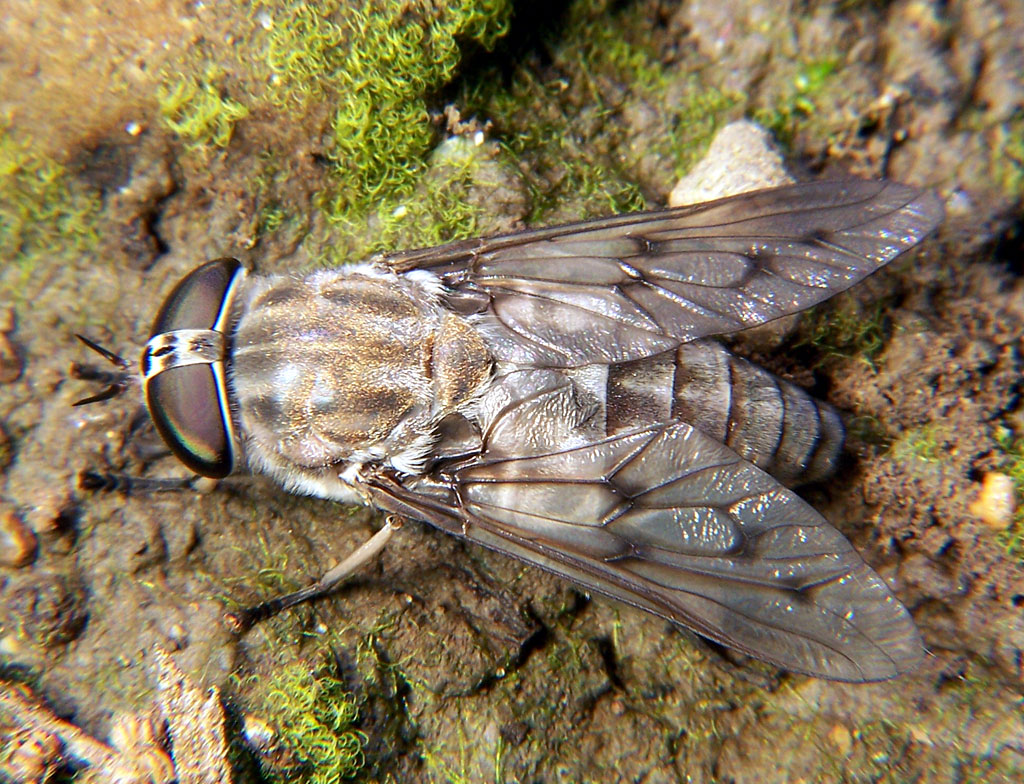I've recently returned from a short trip to South Korea, having attended a
friend's wedding in his home port city of Busan, bringing my Asian travel log
to an astounding two trips (the first being Shanghai a few Decembers ago).
Disregarding the fact I barely experienced China the last time and how short
this trip to Korea was, we're still on the Internet and I am still clearly capable
of passing sweeping judgments on entire nations. Unfortunately, this is mostly
meant to be about Russia, so... hum... what do these two countries have in
common? Taxis. Boy are there a lot of taxis.
 |
| And no they aren't as much fun as this. |
One thing about South Korean society is - and feel free to correct me on this because this is based on second-hand knowledge - that there's apparently a
sort of quasi-institutionally forced retirement, wherein anyone
over the age of 62 with a normal job (whatever that is) is immediately pensioned off
whether they want to or not. Unfortunately, as you might expect, the pension is
- to coin a phrase an old flatmate used to say frequently in a thick
Catalan accent - "nothing to write home about". Subsequently, a lot
of elderly South Koreans either start up their own storefronts selling just
about anything and everything or - as commonly seen in a lot of Russian towns
that aren't Moscow - become taxi drivers. However, in the latter case this
isn't restricted to the elderly; my own pet theory is that the surprisingly
large number of taxi companies in places such as Ekaterinburg has more to do
with, as with many things in Russia, the post-soviet collapse of various
industries i.e. for those reading in Glasgow "there's nae jobs,
pally".
 |
| SCOTTISH IN-JOKE. |
 |
| ...whereas Barcelona was flat out gay the moment you get off the plane |
Seriously, bar perhaps pavements, there is so much crap
plastered over any available surface on the streets of the Korean capital which completely ignore the concept of negative space maybe because it's wasting potential revenue. Forgive the bad lighting on the following picture taken with an iPhone (click to enlarge) but hopefully you get the idea.
 |
| WHAT IS ANY OF THIS |
Regardless, with enough badly-translated Eng-uh-rish signs, free wifi, menus with pictures on them, and an above average level of education among locals means that most ignorant foreigners such as myself can eventually brute force their way to their destination without starving to death. I'm hesitant to continue this entry as it seems we're on a bit of a low note, something I try to avoid in posting anything on the Internet, but there was a surprising point during my two weeks off where I was actually missing the chaos of Moscow. Why?
To use a video game analogy, imagine mixing some awful user-created Duke Nukem 3D level and at the same time hitting the "random terrain" button from Sim City 2000's map generator. With the former, assets tend to be thrown in haphazardly. Comparing that to Korea, we see that most businesses will pretty much display all their wares right up front. At the same time poor design rears its head in various ways like common conveniences such as waste bins being completely absent on the streets. Astute followers of my instagram feed will notice that, yes, there are waste bins to be found in places such as train stations, but even then they're rare and geared towards recycling.
The reason for this is that the Korean government developed a new garbage disposal system back in 1995, aimed at curbing waste. Lifting a quote from the previous link:
I should probably post a picture of those weird vending machines you always hear about? Here's one in a park.
The garbage issue doesn't just affect the streets either.
At the same time, continuing Sim City 2000's random terrain idea, The train ride from Seoul to Busan showed me that Korean geography is pretty wild. Roads in both Seoul and Busan seem to nod towards Gaudi’s design philosophy and abhor straight lines. An answer to the question as to why the terrain hadn't been completely leveled for the sake of straight roads and uniformity escaped me, but it did make me wonder how much a challenge civil engineers face in South Korea. In addition, buildings are - how to put it? - "tiny big" or maybe "big tiny".
Of all things, the tower blocks of Seoul immediately reminded me of one art class
from secondary school. We were asked to draw the outside of a house with a
certain number of floors specifically with large windows and a front door.
Essentially the point to the prepubescent mass of blazer-wearing oiks was to
demonstrate the first-time error of poorly-established scale, in that despite
seeming okay from the outside, windows are not the whole "floor" and
putting them too close together vertically implies that - if you inhabited this
imaginary house on A3-sized paper - you'd be hunched over most of the time
because each floor was only about a meter high due to how close you'd packed
the windows on top of one another. Although I didn’t suffer from any lower back
problems anywhere during my time in Korea, aside from having to periodically
duck here and there (I'm only about 5' 9" in real life) to avoid whacking
my head off signs and trinkets hanging from shop windows and the roofs of food
stalls, from the outside, most "large" buildings at the same time
look extremely dinky here in Korea. It's a hard visual effect to express with
words, but it's certainly there.
To use a video game analogy, imagine mixing some awful user-created Duke Nukem 3D level and at the same time hitting the "random terrain" button from Sim City 2000's map generator. With the former, assets tend to be thrown in haphazardly. Comparing that to Korea, we see that most businesses will pretty much display all their wares right up front. At the same time poor design rears its head in various ways like common conveniences such as waste bins being completely absent on the streets. Astute followers of my instagram feed will notice that, yes, there are waste bins to be found in places such as train stations, but even then they're rare and geared towards recycling.
 |
| PET? |
The new system was found to have decreased the nation's waste by almost 20 percent in a decade, according to the Ministry of Environment. The amount of garbage per person fell to 0.95 kilograms per day last year in Korea, meeting the standards of developed countries. The figure was 2.3 kilograms per person per day in 1994, when South Korea had loose regulations on waste management.
Makes sense, given the hyper-industrious tendencies of the nation, but then another problem emerged and maybe this official amount of garbage per person per day is, well, garbage. How was the new level of waste accounted for? Only by the amounts that are picked up by municipal services from designated areas? That's not a good metric. It's fine and dandy introducing recycling, but given the amount of vending machines, fast food and 7-11s strewn across Seoul, you're probably already guessing what a deficit in waste cans leads to.
I should probably post a picture of those weird vending machines you always hear about? Here's one in a park.
 |
| And usually a garbage can would be planted beside them, but nope |
Seoul city faced further criticism from citizens in 2005 for abolishing 780 trashcans in 263 subway stations. The city removed all the trashcans on the platforms, only leaving the ones near the ticket windows.So not exactly something I'd consider ideal, and in comparison to Russia, I've never had much trouble disposing of waste here.
At the same time, continuing Sim City 2000's random terrain idea, The train ride from Seoul to Busan showed me that Korean geography is pretty wild. Roads in both Seoul and Busan seem to nod towards Gaudi’s design philosophy and abhor straight lines. An answer to the question as to why the terrain hadn't been completely leveled for the sake of straight roads and uniformity escaped me, but it did make me wonder how much a challenge civil engineers face in South Korea. In addition, buildings are - how to put it? - "tiny big" or maybe "big tiny".
 |
| Tiny cars for big kids can, however, be purchased in Busan |
Were I an architect, I might be able to explain things better. It's not oppressive, really, it's just that the skyline from what I've seen is as if someone had previously choked on some colorless Lego bricks covered with the Korean alphabet and then barfed the contents onto a mountainous landscape. Busan was especially indistinct and didn’t seem to follow any “grand plan”, and as such may contribute to the point I’m (eventually) getting to. At least to Moscow's credit, despite its atrocious drivers and quality of roads, several "stalinka" skyscrapers dominate the center’s landscape and, depending on where you are within the city, you can usually orientate yourself accordingly within the range of some prominent landmark such as the Soviet gothic high-rises as well as various ring roads, metro stations and main thoroughfares. This is also seen in places like London, which actually has legal requirements limiting the building of any construction that may potentially obscure the view of St. Paul’s Cathedral for instance - something known as "protected view".
Back in Korea, yes, there are certain landmarks I could have probably relied on – certainly in Seoul. Parks and statues dedicated to various glorious (they’re always glorious) military figures are dotted around the city.
 |
| South Korean admirals enjoy being surrounded by skyscrapers in Busan too |
Consequently, if you recall that the automatic retirement age mentioned earlier, the overwhelming majority of drivers I encountered in both Busan and Seoul were pretty much unable to make full use of their devices. By full use I mean “physically inputting the address into a device primarily designed to direct you to your location of choice”.
So, of
course, hijinks ensued. The following is a bastardized transcript of a
conversation I had in Busan with some taxi drivers. As context, the day before I
had already taxied up and down Busan, a port city which is long and narrow much like
Volgograd, and my vague awareness knew that we had to go north get on to the main
coastal “Interchange” highway for about 10 kilometers. By the way, I had already hailed down two
drivers prior to this conversation. The first said he wasn't going that
direction because he wanted to go home and eat. The second stared blankly, crossed his arms as if to flatly say “No”. Joy.
====
(Third taxi pulls up)
(Third taxi pulls up)
Me: I
need to go here [zooming in showing address on phone in largest font possible].
Taxi driver
3: [stares blankly through reading glasses]
Me: [sitting
down, shutting door] Haeundae-gu, yeah? [pointing to navigator and to phone]
(I believe “-gu” means “area” or “district”, which Busan is split up into a number of and is where I was roughly going)
Taxi driver 3: …Call friend.
Me: [not
sure whether it was a question or a
demand] Umm… Can I use your phone?
Taxi
driver 3: Uhh… English! Call friend!
Me: Err…
(Taxi
driver begins driving south)
Me: Look
[pointing to address]. Haeundae-gu, yeah?
Taxi
driver 3: I call friend! English! [starts using his phone]
Me: What?
(After a
minute or so of conversation with “friend”, and me beginning to quietly fume
knowing full well we should have turned around by now, taxi driver comes to a
halt by non-descript bus stop.)
Taxi
driver 3: Friend!
Me:
[silent rage building] Look, can I use phone?
Taxi
driver 3: Here! Friend! [taps on shoulder]
(As it
transpires my taxi driver had called another
taxi driver who he claimed could speak English, we both get out and I get into
another taxi)
Me:
[opening door] ...English?
Taxi
driver 4: Japanese?
Me: ...
(Taxi
driver 3 drives off, having successfully driven me half a kilometer in the wrong direction, I set
about going through same rigmarole of showing address on phone in largest font
possible and then try a different tactic)
Me: Can I
use your phone? Your phone. Please [mimicking with hands]. Call friend? He
speaks Korean.
Taxi
driver 4: Uh… [hands phone over]
Me: It’s
okay. [start to dial in international code for Korea which is +82]
Taxi driver
4: [sees number that isn’t something he’s used to] No no no!
Me:
[impatient] Seriously, it’s fine! Korea number!
(Taxi
driver 4 returns to fruitless task of attempting to input exact address into
hyper-advanced screaming navigation device)
Me: Just a
minute please. [phone rings]
(We sit,
motionless, already sat in the wrong area. My friend’s phone is, of course,
engaged, but I persist.)
Friend:
[eventually answering the phone in Korean] Hello?
Me:
[already frustrated] Kostya, it’s me.
Friend:
Oh hey! Can I call you back? I’m at the beach with some ladies.
Me: [on
the verge of snapping] No you fucking can’t! This isn't my phone, it belongs to
the taxi driver and it’ll take just a few seconds for you to tell him where to
go, alright?
Friend: Uh…
okay.
Me:
[exasperated] Thank you!
Taxi
driver 4: [speaks to friend for about a minute, nodding and tone of voice
indicate that “oh it’s that way”, hands phone back to me]
Friend:
Okay he’s going to take you to the Haeundae Grand Hotel, I’ll see you in the
lobby in ten minutes. *click*
Me: Okay but it’s going
to take a lot longer than ten minutes.
(Unfortunately,
Kostya didn’t catch that last part as he had already hung up leading to more
confusion at the hotel, but the main debacle ended here and we set off on a
forty-minute journey through rush hour traffic to probably the largest hotel in
Busan, which sits right on the waterfront and is impossible to miss in spite of
all the other factors I've already mentioned.)
====
Taxi driver 3’s claims weren't complete bullshit, the “friend” he called did speak a handful of English words, but they were mostly Anglicized Korean words like “kim chi” and “Kim Jong-il”.
Also, don’t get me wrong, my trip to Korea wasn't bad at all. The people I met were all extremely welcoming. Shops, hotels and restaurants are more than happy to serve foreigners (unlike another country I might have mentioned several times). The quality of seafood and produce is outstanding and not overpriced either. Wandering through parks past groups of schoolchildren usually led to dreadfully cute cries of "hello!" from the kids. Aside from the taxi issue, I can't recall a single moment where I was particularly uncomfortable even after the culture shock wore off. The wedding itself was wonderful and I couldn't be more proud of Hong for finally tying the knot.
To cut a long story short, South Korea is well worth visiting and I barely scratched the surface of what there is to do. War nerds will surely get a kick out of checking out the De-Militarized Zone, something I failed to see, but I did see Busan's Korean War memorial on top of a very steep hill.
All I'm saying is that, when you're in Korea, it might be better to use the subway.
Also, don’t get me wrong, my trip to Korea wasn't bad at all. The people I met were all extremely welcoming. Shops, hotels and restaurants are more than happy to serve foreigners (unlike another country I might have mentioned several times). The quality of seafood and produce is outstanding and not overpriced either. Wandering through parks past groups of schoolchildren usually led to dreadfully cute cries of "hello!" from the kids. Aside from the taxi issue, I can't recall a single moment where I was particularly uncomfortable even after the culture shock wore off. The wedding itself was wonderful and I couldn't be more proud of Hong for finally tying the knot.
To cut a long story short, South Korea is well worth visiting and I barely scratched the surface of what there is to do. War nerds will surely get a kick out of checking out the De-Militarized Zone, something I failed to see, but I did see Busan's Korean War memorial on top of a very steep hill.
All I'm saying is that, when you're in Korea, it might be better to use the subway.
































